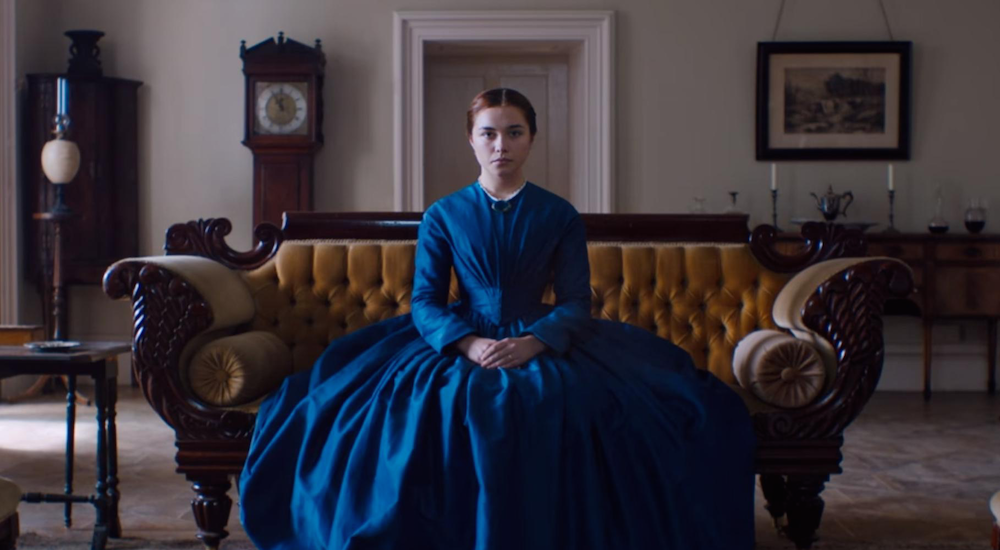Naming your film Lady Macbeth is ambitious. It certainly sets a high bar for what you’re promising. Thankfully, director William Oldroyd delivers. Lady Macbeth is a harrowing and dark tragedy about a young woman living in Victorian times who takes her power when she can – whatever the means.
In 1865, young teenager Katherine (Florence Pugh) has just been married to the morose and drunken Alexander, a marriage arranged by her father along with a parcel of land. Alexander and his even grouchier father Boris rule their stark, muddy land with grit and an iron fist, not even allowing Katherine to walk outside. After Alexander fails to consummate the marriage on his wedding night, Katherine is pretty much left on her own to take care of the house and sleep next to a cold husband every night. When Alexander and Boris go away on business, Katherine is for once truly alone. Once she meets the aggressive and handsome groomsman James (Cosmo Jarvis), things begin looking up for her.
With her husband gone, she eagerly welcomes the ethnically ambiguous James into her bed with a zest of innocence, her decisions fueled by sexual passion. It’s a dangerous mix that the audience knows can only lead to tragedy. Katherine eagerly flaunts this exploit in front of her servants, including the quiet but stern Anna, an African-British woman who endured James’s attempts to strip her of her clothes and suspend her, naked, from the ceiling. Katherine’s flagrant disregard for Anna’s trauma hits hard at both how deprived Katherine is and how naïve she is. Her eagerness to rub her happiness in other’s faces, to disregard the feelings and experiences of others, illustrates her own self-obsession and youth.
Florence Pugh is excellent as our protagonist Katherine. With zero background music, she illustrates Katherine’s boredom and then desperation with ease, imbuing each with innocence and naiveté, neither excusing nor condemning Katherine’s decisions. As Katherine’s decisions begin building on one another, she quickly begins to go a little power crazy, using her status as the woman of the house as Pugh’s eyes expressively waver from crazy to passionate and everything in between.
Lady Macbeth succeeds as a gothic film, as each decision Katherine makes leads her down a darker and more ominous path. While at first you found yourself rooting for her independence, the audience quickly realizes that such power can quickly turn toxic. Katherine’s decisions become more and more horrifying and lead the audience to question their faith in the protagonist until that faith turns to revulsion. It’s a quick descent helped by the lack of background music and drab costumes and sets. The cast, particularly for Katherine and Anna, exceed expectations at silently communicating their limitations and motivations.
Lady Macbeth is no doubt a difficult film to watch and doesn’t necessarily feel like required viewing. Still, it’s a well thought-out film that explores the corruption of a woman too self-involved to understand the consequences of her actions.

